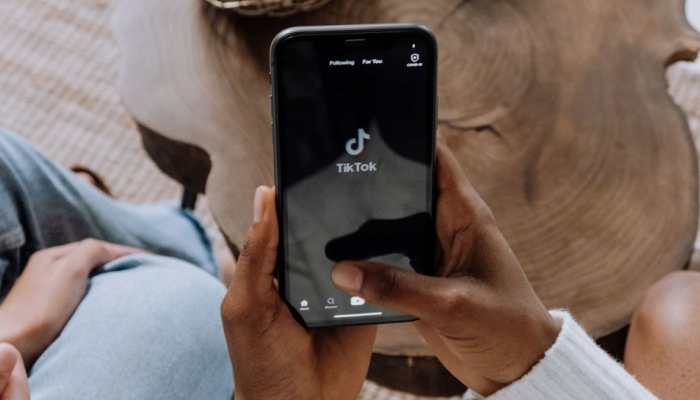TikTok Ban: Countries That Have Banned Video-Sharing App Completely or Partially - Check List
Amid growing security concerns worldwide, the video-sharing app TikTok has been facing a ban in several countries, with many nations limiting its use, especially when it comes to downloading the app on government devices.
- On March 24, France banned public sector employees from downloading “recreational applications” including TikTok
- In Pakistan, the video-sharing app has been banned several times and then the bans were lifted
- In India, TikTok is completely banned
Trending Photos
)
China-based app TikTok, which has a huge global following, has been facing growing scrutiny as concerns have mounted globally about the potential for the Chinese government to access users' location and contact data through ByteDance, TikTok's Chinese parent company. With France being one of the latest European companies to ban the platform, albeit partially, here's a list of countries across the globe where TikTok has been partially, temporarily, or completely banned.
1. Afghanistan: Completely Banned
TikTok was banned by the Taliban leadership who wanted to protect the nation's youth from “being misled.” Not just TikTok, Afghanistan banned the game PubG too.
2. Belgium: Banned for 6 months
Worried about the country's cybersecurity, privacy, and misinformation, Prime Minister Alexander de Croo temporarily banned TikTok for six months on March 10. TikTok has said it was "disappointed at this suspension".
3. Denmark: Banned on government devices
As a cybersecurity measure, Denmark’s Defence Ministry banned its employees from having TikTok on their work phones on March 6. Earlier in February, Denmark’s Parliament had urged lawmakers and employees against having the video-sharing app.
4. United States: Banned on government devices
At the start of March, driven by data security concerns, the United States gave government agencies 30 days to delete TikTok from federal devices and systems. While the ban is so far limited to government devices, some lawmakers have advocated a total ban on the video-sharing app. The move has further caused tension in the already fragile US-China relationship, with China describing the ban as an abuse of state power and suppressing firms from other countries. More than half of US's 50 states have now banned TikTok from official devices.
5. Canada: Banned on government devices
Canada's chief information officer, following an investigation, said TikTok "presents an unacceptable level of risk to privacy and security" and announced that government-issued devices must not use TikTok. Prime Minister Justin Trudeau has admitted to the security concerns related to the video-sharing app.
6. United Kingdom: Banned on government devices
On March 23, it was announced that Britain's parliament will block TikTok on all devices on its network following a similar ban on government devices. Britain became the latest Western institution to bar the Chinese-owned video app over security concerns. Last week, UK banned the Chinese-owned video app on government phones.
7. Australia: Banned by some government agencies
Amid security concerns, several Australian government agencies have begun banning TikTok. Following the move in the US, the call for a ban on government devices in Australia has gained ground. According to reports in the Sydney Morning Herald, two federal departments - the Department of Climate Change, Energy, the Environment and Water and the Department of Agriculture, Fisheries and Forestry have banned their employees from downloading TikTok on their official phones.
8. New Zealand: Banned on government devices
New Zealand has recently said that it would ban TikTok on devices with access to the country's parliamentary network due to cybersecurity concerns. In New Zealand, TikTok will be banned on all devices with access to the parliament's network by the end of March.
9. Norway: Banned on government devices
Like several other European countries, the Norwegian parliament has banned Tiktok on work devices. Norway’s Justice Ministry has issued a warning that government employees should not install the app on their official phones or devices that have access to the assembly’s systems and should be removed as quickly as possible.
10. France: Banned on government devices
On March 24, France banned public sector employees from downloading “recreational applications” including the Chinese-owned TikTok on their work phones.
11. European Union: Banned on government devices
The European Parliament has also banned TikTok from staff phones. Starting from March 20, the ban will reportedly apply to corporate devices such as mobile phones and tablets which are enrolled in Parliament's mobile management application, a Parliament spokesperson was quoted by Reuters.
12. Taiwan: Banned on government devices
A public sector ban was imposed on TikTok in Taiwan in December 2022. The move came after the FBI warned that TikTok posed a national security risk. Government devices, including mobile phones, tablets, and desktop computers, are not allowed to use Chinese-made software, which includes apps like TikTok, its Chinese equivalent Douyin, or Xiaohongshu, a Chinese lifestyle content app, reported AP.
13. Indonesia: Banned and Ban Lifted
Way back in 2018, Indonesia had banned TikTok for containing “pornography, inappropriate content, and blasphemy”. According to news reports, the country overturned the ban after the app agreed to censor “negative content”.
14. Pakistan: Banned and Ban Lifted
In Pakistan, the video-sharing app has been banned and then the ban was lifted multiple times. TikTok was first banned in Pakistan in October 2020, but it was lifted after just 10 days following an assurance by the company to block accounts "spreading obscenity". Following this, there have been several instances, at least 3 more times, when there was a ban was placed and subsequently lifted.
15. India: Completely Banned
Back home in India, the video-sharing app has been completely banned. In 2020, India imposed a nationwide ban on TikTok and dozens of other Chinese apps, including the messaging app WeChat, over privacy and security concerns. TikTok was among 59 mobile apps which were banned by the Centre following the clash with Chinese forces in Galwan, which left 20 Indian soldiers dead. The companies were given a chance to respond to questions on privacy and security requirements but the ban was made permanent in January 2021.
Stay informed on all the latest news, real-time breaking news updates, and follow all the important headlines in india news and world News on Zee News.
Live Tv







)
)
)
)
)
)
)
)
)
)

